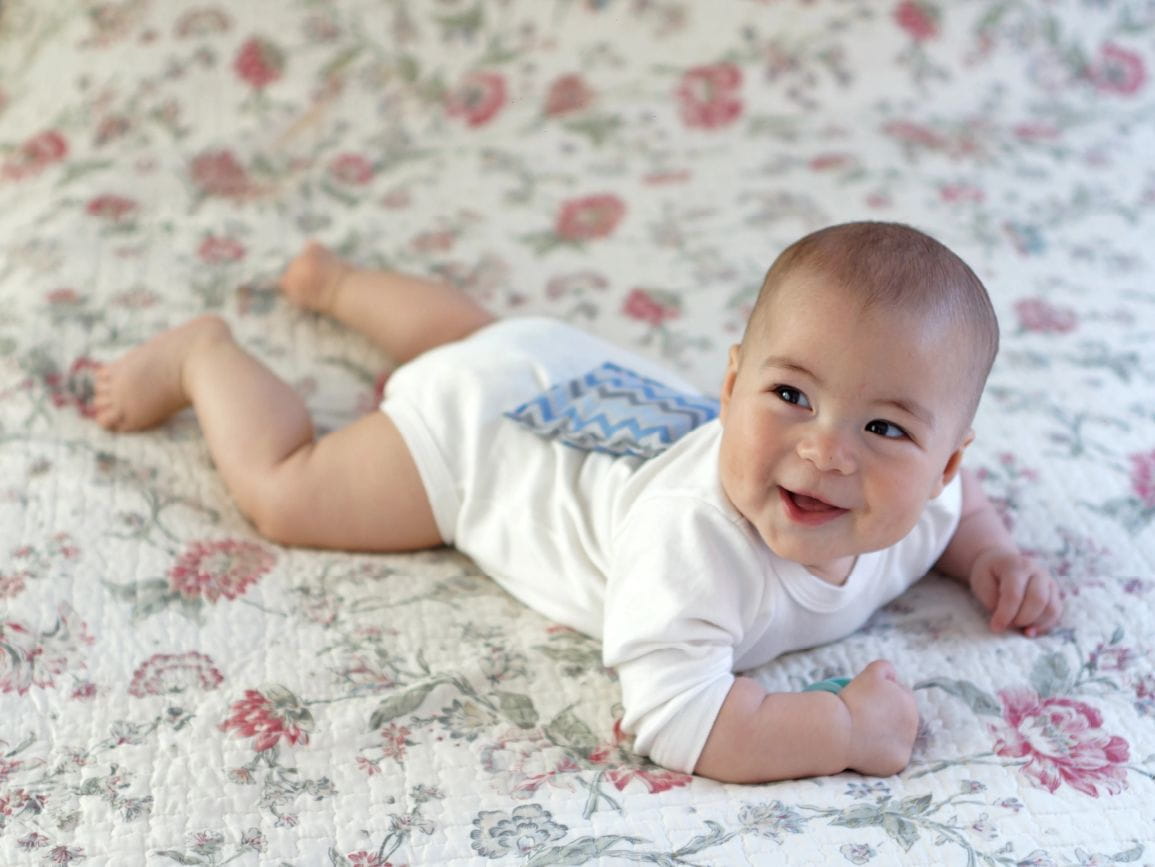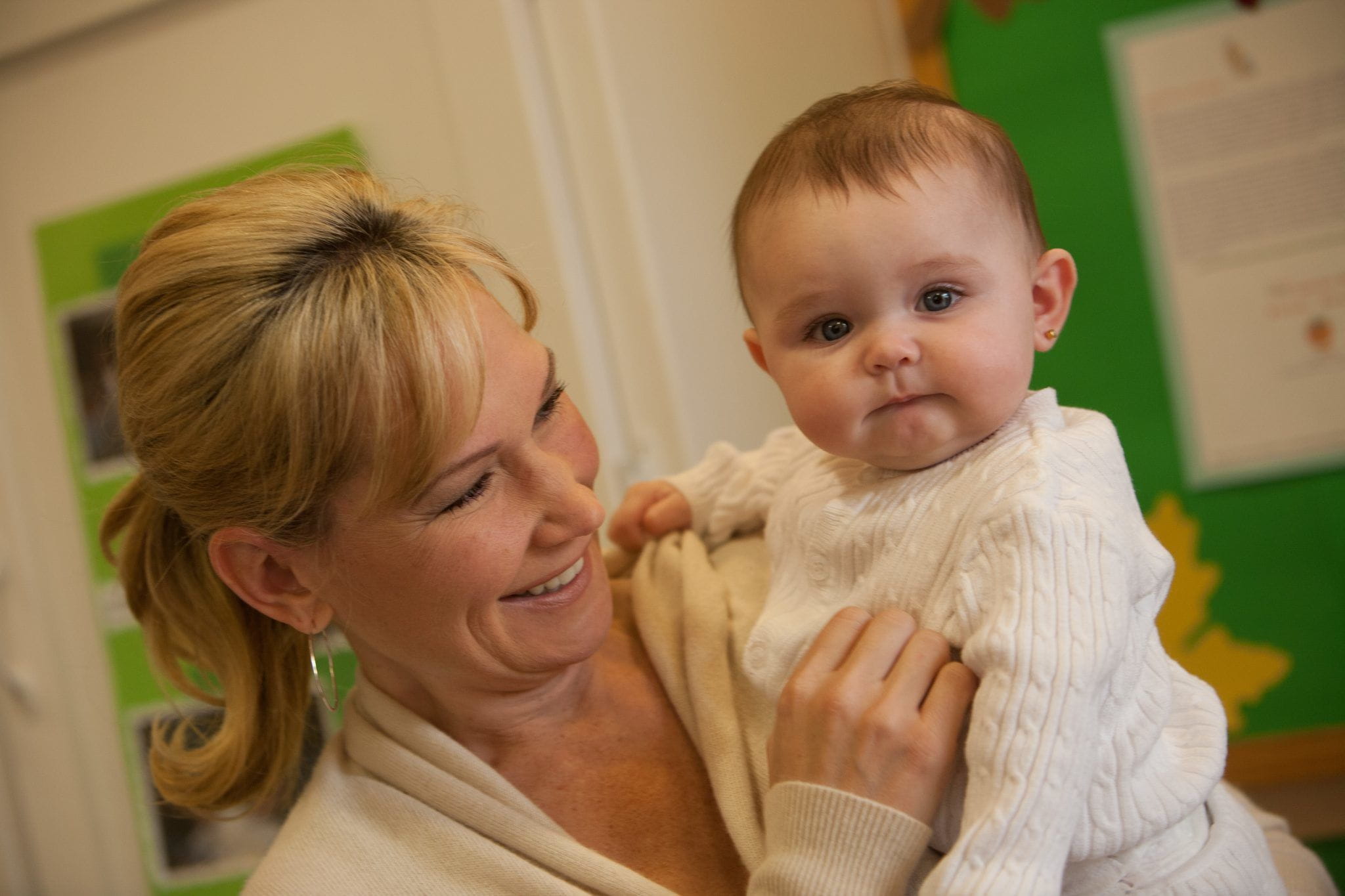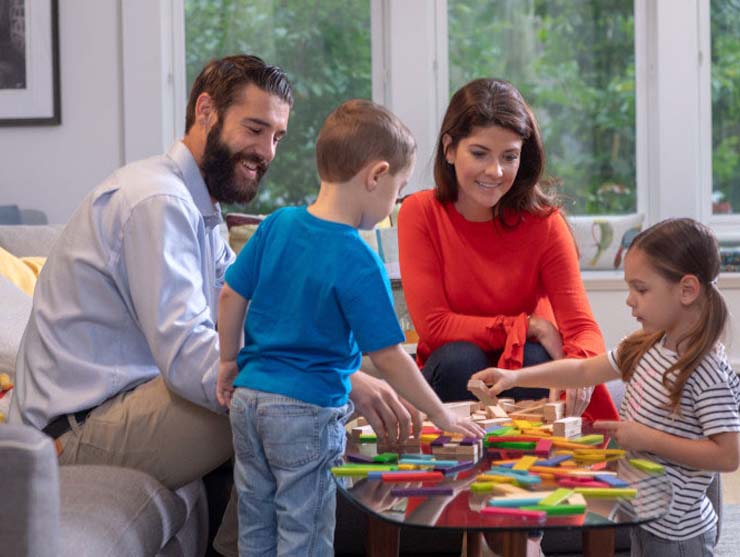A great deal of infant care revolves around responsibilities like feeding, sleeping, and diapering, and these are prime times to connect with your infant, talk, laugh, enjoy one another's company, and begin providing guidance, and teaching your baby about the world.
Give the Freedom to Explore Within Limits
Infants need freedom to explore, but they also need limits. You need good judgment to provide both. Infants who spend too much time in playpens or chairs have too little space and time to learn. Infants need freedom in a safe environment, for example on the floor on their stomachs or backs, or on their hands and knees, to explore and play with a rich variety of objects.
Baby-Proof Your Home
Safety is key in providing your baby freedom to explore. You can do simple things to create a safe, trouble-free environment with basic “baby-proofing,” like moving breakable objects to higher shelves and put gates near stairs.
Create an Environment of "Yes," not "No
If your infant constantly plays with the soil in the potted plant, consider removing the plant. Sure, children need to learn the word "no," but there are plenty of opportunities for that. Eliminate the temptations for undesirable exploration and create a "yes" environment where curiosity and exploration don’t lead to restraints.
Redirect
Redirect your infant from things you don't want her to have or do. It's easier to get an infant involved in something else than to take something away. If she has your keys and you need them, don't just grab them; instead, interest her in some other toy or activity. She will then let go of the keys.
Ignore Annoying Behavior
Sometimes an infant's behavior can be annoying but not harmful. If your infant pulls everything out of your sock drawer, just take a deep breath and ignore it. Decide what's important.
Validate Good Behavior
Even infants seek approval and attention. Respond to your child's appropriate behavior with words of praise and lots of hugs and kisses. Your attention is most important to your infant. Use it to encourage positive behavior.
Love Your Infant Interactively
Children grow and learn best in an environment in which they feel loved and secure. Spend time playing, snuggling, in conversation, and getting to know one another.
Respond to Your Infant's Needs
Establishing a general routine is a reasonable goal for new parents and ultimately beneficial to older infants. The sense of security and trust an infant acquires with responsive care is essential for the development of self-control.
Learning self-control and appropriate behavior is a lifelong process that begins at birth. Actually, it begins when parents learn self-control and appropriate behavior. Children are sure to test our limits and try our patience as they make their presence known in the world. It's a long journey for them and for us.
THE WORK-LIFE EQUATION PODCAST: LEMONS TO LEMONADE WITH FOUR INGREDIENTS
On this episode of the Work-Life Equation, turn those parenting lemons into lemonade! It might not seem like it, but your child is more predictable than you think—and each stage of your child’s development, along with every meltdown, is a gateway to skill-building for your little one. Hear early childhood experts Ellen Galinsky and Rachel Robertson discuss common parenting challenges and the science behind parenting that can turn frustration into great skills for life.
Resources Related to Discipline
- The AAP Parent's Guide to Discipline describes the difference between discipline and punishment and provides tips on how to encourage good behavior. Methods include using natural consequences, logical consequences, withholding privileges and time-outs. It also includes six tips on making discipline more effective as well as an explanation of why spanking is not the best choice.
- Your parenting style can influence your discipline style. Read about the Four Baumrind Parenting Styles.
- Learn what to do when your child doesn’t listen.
- Subscribe to the Work-Life Equation Podcast on iTunes and Google Play Music.





